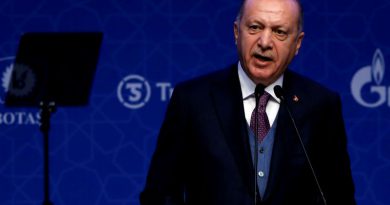The RSS route march in Tamil Nadu is upheld by the Supreme Court
Tamil Nadu – The state had first refused permission for the route marches, claiming a danger of attack from the outlawed organisation PFI, but the Madras High Court had approved them on February 10.
The Supreme Court rejected the state government’s plea on Tuesday, allowing the Rashtriya Swayamsevak Sangh (RSS) to stage a route march in Tamil Nadu.
The state had refused permission for the route marches, citing a threat of attack from the outlawed organisation Popular Front of India, but the Madras High Court had approved them on February 10. (PFI).
When discussing the past history of PFI attacks on similar rallies held by RSS, a bench of justices V Ramasubramanian and Pankaj Mithal stated, “The chart provided by the state government shows that the members of the respondent organisation were the victims in many of those cases and that they were not the perpetrators. Therefore, neither in the main writ petitions nor in the review applications, can we criticise the order made by the learned Judge. Therefore, it is possible that all exceptional leave petitions will be denied.
The Madras High Court has periodically issued rulings addressing the request by the RSS to organise route marches, a type of peaceful procession along designated routes in the state. The Tamil Nadu government had filed a set of three appeals against these orders.
The high court issued the first directive in this regard on September 22, ordering the state administration to permit RSS to hold the march on October 2.
In order to prevent any unfortunate incidents or inconveniences to the general public, the HC also issued a number of restrictions. RSS members had to abide by a rule that prohibited them from carrying lathis or other weapons.
Later, an RSS member filed a contempt petition against the Chennai police for denying them permission to perform a route march.
The state argued that after a review of the circumstances, authorization could be given to hold a march or procession on a ground or enclosed space.
The high court modified its September 22 judgement and approved conduct of the march in a stadium or ground on November 4 while deciding the contempt case.
The march organisers contested this order before the HC’s division bench.
On February 10, the HC overturned the decision from November 4 and reinstated the decision from September 22.
The state also appealed the orders from November 4 and February 10 separately.
The RSS march organisers argued before the top court that Article 19(1)(b) of the Indian Constitution guarantees the fundamental right to peaceful assembly, and that their march could not be postponed because of potential violence by PFI because it is the state’s responsibility to provide adequate security.
On the other side, the state argued that “reasonable restrictions” under Article 19(3) were necessary for the preservation of the nation’s integrity, sovereignty, or public order.
The state mentioned instances where PFI members threw petrol bombs at an RSS march along a same route in Karnataka’s Haveri district in October.
The top court modified the earlier ruling of September 22 while setting aside the November 4 order on the grounds that the HC judge “travelled beyond the scope of a contempt petition.” It did not address the reasons put up by either side.
The February 10th ruling to set aside this injunction was maintained by the court. The state’s appeal against the November 4 order was denied on this basis alone.
The decision from September 22 was accepted by the Court because it correctly interpreted the pertinent legal requirements and imposed the prerequisites for holding the march. It was one of the requirements that the procession’s participants not in any way hurt the feelings of any religious, linguistic, cultural, or other groups.
A promise had to be made to pay for any damage done to either public or private property while the shipment was travelling.
The September 22 directions had been granted by the HC order from February 10, and it had been requested that the organisers approach the state authorities with three alternate dates of their choosing in order to hold the route-march.
The state government was also given instructions to provide the organisers permission on one of the selected dates.
The HC demanded that the march be calm and advised the attendees to make sure that tight discipline be upheld without any provocation or incitement on their side.
In order to ensure that the procession proceeds peacefully, the HC had instructed the state to implement proper safety measures and make necessary traffic arrangements.
“The State’s approach towards citizens’ rights can never be adversarial in a welfare state,” the High Court’s order had stated. “It must be taken into consideration for granting permission for peaceful rallies, protests, processions, or meetings so as to maintain a healthy democracy where the Constitution reigns supreme and the fundamental rights of citizens are placed on a lofty pedestal.”



